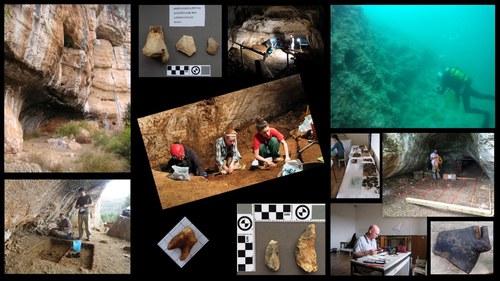- Lecture 1: 10 December 2019
Ivor Janković
Advances in Palaeolithic research in Istria, Croatia
The territory of Croatia has crucial sites for understanding numerous aspects of the early inhabitants of Europe. Sites in both inland (e.g. Krapina, Vindija etc.) and coastal parts of Croatia (e.g. Vela Spila, Šandalja, Vlakno, Romualdova Pećina etc.) provide a valuable basis for studies into Neandertal, as well as Upper Palaeolithic groups. Of particular importance is the region of Istria which saw a rapid rise in the research on Palaeolithic in the last 15 years, mainly due to several topical projects. This presentation will focus on research on the main sites that yielded evidence on Middle and Upper Palaeolithic inhabitation and outline the future of research.
- Lecture 2: 11 December 2019
Mario Novak
Disease, violence and death: Prehistoric lifestyles in Croatia
Human skeletal and dental remains represent a rich source of information about past people. By studying these remains we can obtain previously unknown data on various aspects of life (and death) of our distant ancestors such as diet, health status, migrations and the occurrence of violence. The PASTLIVE project combines conventional (bio)archaeological methods with state-of-the-art techniques like ancient DNA and stable isotopes analyses, geometric morphometrics and radiographic imaging aiming to reconstruct prehistoric lifestyles on the territory of modern-day Croatia. This presentation will provide an overview of activities conducted within the PASTLIVES project and will reveal new details on mortuary practices, subsistence strategies, violence, and population changes occurring on the eastern Adriatic coast and adjacent regions between 6000 and 1000 BCE.
